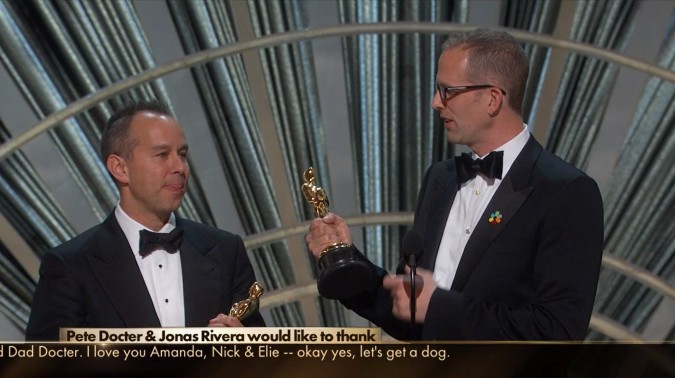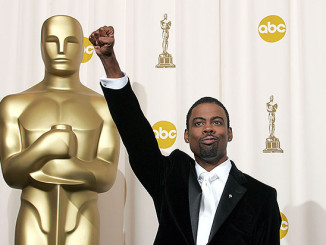
Have you stopped watching the Oscars because the telecast is too long, you have to sit through a whole bunch of categories you don’t care about until you get to the ones you do, and even then your favorite films are hardly ever represented? If so, the Academy of Motion Picture Arts and Scientists would like a moment of your time.
The AMPAS Board of Governors, in response to falling ratings for the Oscar ceremony have instituted three major changes in order to increase viewership. The changes are:
- In order to adhere to a strict three hour run time in the future, “select categories” will be given out during the commercial breaks with an edited version of the acceptance speeches to air later in the telecast.
- A category will be added to honor “Outstanding achievement in popular film.”
- The 2020 awards ceremony will be moved up from February 24 to February 9 to put it closer to the start of awards season rather than at its end.
The changes come after the 2018 Oscar telecast brought in the worst ratings in the history of the ceremony. It only attracted 26.5 million views, down 19% from 2017’s 32.9 million viewers. Ratings have been in decline since the ceremony’s high of 43.7 million viewers in 2014.
But the changes have an air of “grabbing at straws” than “solid foundation for ratings improvement.” They appear to be more weak efforts to affect change than bold moves to right the ship.
The first change the Academy has put forth is set to address what it sees as a major problem driving viewers away–the length of the ceremony itself. The 2018 show was a whopping 3 hours and 53 minutes long. That seems like a punitive amount of time to watch handsome people in tuxedos and evening gowns congratulate each other. But it is shorter than the longest ceremony on record–the marathon like 2002 ceremony that clocked in at 4 hours and 23 minutes. As a matter of fact, we haven’t had a ceremony consistently come in at or under three hours since the late-1970s/early-1980s. There’s a whole generation who have become used to a lengthy Oscar ceremonies. Did they all get sick of the length now, after 30 years of watching them?
I’m not saying that a shorter ceremony is a bad thing, but is the plan the way to go about it? There are around 30 minutes of commercials in an Oscar ceremony, give or take. If you took 30 minutes of acceptance speeches out of this year’s ceremony, you’d still be over 3 hours by 23 minutes, a veritable drop in the bucket when it comes to reducing run time.
 There is a lot of fat that could be cut from the ceremony that will allow the members of those “select categories” to still have their moment in the sun. Like., maybe we don’t order pizza for the audience or round up a gaggle of celebs to crash a movie next door. Funny or not, those comedy bits eat up a lot of time and drag the proceedings to a halt. And do we need to have every Best Song nominee sung in its entirety? I mean, it works when you have a superstar recording artist like Bruce Springsteen, Lady Gaga or Justin Timberlake singing the song, but if it is someone the audience doesn’t know singing a song they’ve never heard from a movie they might not have seen, they’ll zone out. Do a medley instead. And get rid of the montages and filmed pieces. Yes, even the “In Memorium” segment. The tribute wasn’t a part of the ceremony until 1993, and now it is primarily known for who was left out than who was honored. If you aren’t going to pay tribute to everyone who died, don’t bother pay tribute to anyone.
There is a lot of fat that could be cut from the ceremony that will allow the members of those “select categories” to still have their moment in the sun. Like., maybe we don’t order pizza for the audience or round up a gaggle of celebs to crash a movie next door. Funny or not, those comedy bits eat up a lot of time and drag the proceedings to a halt. And do we need to have every Best Song nominee sung in its entirety? I mean, it works when you have a superstar recording artist like Bruce Springsteen, Lady Gaga or Justin Timberlake singing the song, but if it is someone the audience doesn’t know singing a song they’ve never heard from a movie they might not have seen, they’ll zone out. Do a medley instead. And get rid of the montages and filmed pieces. Yes, even the “In Memorium” segment. The tribute wasn’t a part of the ceremony until 1993, and now it is primarily known for who was left out than who was honored. If you aren’t going to pay tribute to everyone who died, don’t bother pay tribute to anyone.
But if you are worried about time, don’t add another category, as the academy is doing here. And this is the change that irks me the most.
The reason for this change is that the conventional wisdom states that viewers don’t tune in without a rooting interest in a film they saw or an actor they loved. That 2014 ceremony? It had superstars like Matthew McConaughey, Sandra Bullock, Leonardo DiCaprio and Julia Roberts up for individual awards and four films that made over $100 million domestically (American Hustle, Gravity, Captain Phillips and The Wolf of Wall Street) in the race for Best Picture. This year only had two films (Dunkirk, Get Out) above the $100 million dollar plateau and no blockbuster stars amongst the nominees.
You can understand the logic of the Academy wanting to have a category where the most popular films could battle it out. The thing is they already have one–Best Picture. But the Academy always had a bias against well-made films that made too much money, were too popular or had what voters considered too frivolous subject matter. The better reviewed The Dark Knight (94% Fresh at Rotten Tomatoes) gets snubbed for Best Picture in 2008 while the less well reviewed The Reader (62% Fresh) gets a Best Picture nod because the former was a superhero film that was the highest grossing film of the year and the latter was an exploration of Nazi atrocities with a bit of pedophilia mixed in that people hardly saw. On the rare occasion that a blockbuster like Avatar or Titanic gets a nomination, it is as the exception that proves the rule.
You’d think that things would get better for the blockbusters when the Academy went to ten nominees (then, two years later backslid to “5 to 10” nominees) but it didn’t. Take last year. Wonder Woman was one of the best reviewed (92% fresh) films of the year, with as good if not better a Tomatometer score than five of the eventual nominees, including Best Picture winner The Shape of Water. But it didn’t get a nomination even though the Academy only deemed fit to nominate nine films that year. There was a spot available for Wonder Woman (or another worthy contender), but the Academy didn’t thing it merited a nomination even though critics and audiences did.
I imagine that the board of governors is expecting a pat on the back for finally recognizing high quality popular films. Well, they aren’t getting one from me. With this new category, all the Academy is doing is creating a another quarantined area where the can put great films so they can ignore them for Best Picture because they don’t fit its arbitrary idea of what a “Best Picture” can be. Every year you find critics’ top ten list filled with summer blockbusters, animated fare, foreign films, documentaries and weighty dramas that speak on the human condition. The Academy feels that only the latter matters. So when you are wondering whether it will be Mission Impossible–Fallout or Avengers: Infinity War that takes home the first Best Popular Film Oscar, remember that if the Academy really cared about honoring the best popular film, it would do it in Best Picture.
 The third change involving the moving of ceremony date is, I imagine, to counteract the criticism that the Oscars have become too predictable. Coming at the end of award season, if you follow who wins what at the dozens of awards shows leading up to it, you’ll have a pretty good idea who will go home with an Oscar by the time the ceremony hits.
The third change involving the moving of ceremony date is, I imagine, to counteract the criticism that the Oscars have become too predictable. Coming at the end of award season, if you follow who wins what at the dozens of awards shows leading up to it, you’ll have a pretty good idea who will go home with an Oscar by the time the ceremony hits.
I don’t want to disappoint the Academy, but sometimes you have a good idea who is going to win an Oscar before any other award was given out. You could pretty much tell Frances McDormand was going to win an Oscar for Three Billboards Outside Ebbing, Missouri the moment you left the theater, before any nomination from any awards show was given out. That happens sometimes.
But moving the ceremony to an earlier date will not make the winners more of a shock or a surprise or even guaranteeing you jump ahead of the other award shows. I could see the other awards shows moving their ceremonies back so they stay in front of the Oscars.
And that wouldn’t be a bad thing. As it stands now, the Oscars are the grand finale of the awards season, the culmination and celebration of the movie year. Moving it back won’t take away all of that luster, but it will diminish it a bit. And it won’t guarantee more people will tune in.
And don’t be mistaken. The Academy isn’t looking out for your enjoyment. It charged as much as $2.6 million dollar for a commercial during the 2018 ceremony, and sold all ad spots in the fastest time in Oscar history. But if ratings continue to go down. they won’t be able to sell ads for that much or that quickly. They want their ad money. If your viewing experience is improved, that will just be a pleasant side effect.




